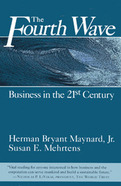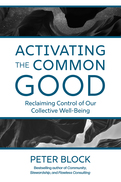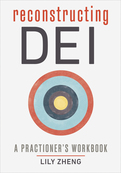Applying the concept of historical waves originally propounded by Alvin Toffler in The Third Wave, Herman Maynard and Susan Mehrtens look toward the next century and foresee a "fourth wave," an era of integration and responsibility far beyond Toffler's revolutionary description of third-wave postindustrial society. Whether we attain this stage of global well-being, however, will depend on how well our business institutions adapt and change.
The Fourth Wave examines the ways business has changed in the second and third waves and must continue to change in the fourth. The changes concern the basics-how an institution is organized, how it defines wealth, how it relates to surrounding communities, how it responds to environmental needs, and how it takes part in the political process.
Maynard and Mehrtens foresee a radically different future in which business principles, concern for the environment, personal integrity, and spiritual values are integrated. The authors also demonstrate the need for a new kind of leadership-managers and CEOs who embrace an attitude of global stewardship; who define their assets as ideas, information, creativity, and vision; and who strive for seamless boundaries between work and private lives for all employees.
Applying the concept of historical waves originally propounded by Alvin Toffler in The Third Wave, Herman Maynard and Susan Mehrtens look toward the next century and foresee a "fourth wave," an era of integration and responsibility far beyond Toffler's revolutionary description of third-wave postindustrial society. Whether we attain this stage of global well-being, however, will depend on how well our business institutions adapt and change.
The Fourth Wave examines the ways business has changed in the second and third waves and must continue to change in the fourth. The changes concern the basics-how an institution is organized, how it defines wealth, how it relates to surrounding communities, how it responds to environmental needs, and how it takes part in the political process.
Maynard and Mehrtens foresee a radically different future in which business principles, concern for the environment, personal integrity, and spiritual values are integrated. The authors also demonstrate the need for a new kind of leadership-managers and CEOs who embrace an attitude of global stewardship; who define their assets as ideas, information, creativity, and vision; and who strive for seamless boundaries between work and private lives for all employees.
Applying the concept of historical waves originally propounded by Alvin Toffler in The Third Wave, Herman Maynard and Susan Mehrtens look toward the next century and foresee a "fourth wave," an era of integration and responsibility far beyond Toffler's revolutionary description of third-wave postindustrial society. Whether we attain this stage of global well-being, however, will depend on how well our business institutions adapt and change.
The Fourth Wave examines the ways business has changed in the second and third waves and must continue to change in the fourth. The changes concern the basics-how an institution is organized, how it defines wealth, how it relates to surrounding communities, how it responds to environmental needs, and how it takes part in the political process.
Maynard and Mehrtens foresee a radically different future in which business principles, concern for the environment, personal integrity, and spiritual values are integrated. The authors also demonstrate the need for a new kind of leadership-managers and CEOs who embrace an attitude of global stewardship; who define their assets as ideas, information, creativity, and vision; and who strive for seamless boundaries between work and private lives for all employees.Applying the concept of historical waves originally propounded by Alvin Toffler in The Third Wave, Herman Maynard and Susan Mehrtens look toward the next century and foresee a "fourth wave," an era of integration and responsibility far beyond Toffler's revolutionary description of third-wave postindustrial society. Whether we attain this stage of global well-being, however, will depend on how well our business institutions adapt and change.
The Fourth Wave examines the ways business has changed in the second and third waves and must continue to change in the fourth. The changes concern the basics-how an institution is organized, how it defines wealth, how it relates to surrounding communities, how it responds to environmental needs, and how it takes part in the political process.
Maynard and Mehrtens foresee a radically different future in which business principles, concern for the environment, personal integrity, and spiritual values are integrated. The authors also demonstrate the need for a new kind of leadership-managers and CEOs who embrace an attitude of global stewardship; who define their assets as ideas, information, creativity, and vision; and who strive for seamless boundaries between work and private lives for all employees.
TO MEET THE CHALLENGES posed by a world that is changing at an ever-increasing pace, we must let go of values, beliefs, and practices that have or shortly will become anachronistic and reformulate new ones that are congruent with changed circumstances. The first step in this process is to become acquainted with the changes that are occurring. Because change is omnipresent, it is especially important to identify those trends that promise transformative change. In this chapter we describe seven trends that we believe underlie the emergence of a new worldview.
Shift in Consciousness
Increasing numbers of people around the world are concluding that consciousness is primary, that the mind or spirit has a reality comparable to material objects (Harman 1988; Renesch 1991; Cook 1991; Rothschild 1991). Many have had transformative experiences (life-changing dreams, journeys inward that reveal new vistas, near-death experiences, series of intuitive knowings [Porter, n.d.]) that have led them to realize they are more than their physical body and logical mind—that there are levels of reality beyond what can be seen, touched, tasted, and smelled.
In reexamining the assumptions, values, and directions of their lives, people are beginning to see themselves as the creators of their realities. They are placing emphasis on interconnectedness and wholeness—of everyone and everything—and affirming the central role of inner wisdom and inner authority (Harman 1988, 1992). More often than not, they are committing themselves to make a difference in the world.
Our discussions with successful people in business, coupled with a study of scientific and contemporary literature, affirm that this global shift in consciousness is not mere New Age hype but the expression of a new worldview. For example, Nobel Prize-winning scientists Roger Sperry (1978), Sir John Eccles (Eccles & Popper 1977), Eugene Wigner (1967, 1982), Sir Arthur Eddington (1929), James Jeans (1943), and Brian Josephson (1985) have all concluded that a worldview based on consciousness emerging from matter (the brain) does not account for all that we see and experience. Such noted business consultants and futurists as George Land, Robert Theobald, and Willis Harman have discussed this in large public forums. It is on the lips of political figures such as Václav Havel, who, standing before the United States Congress as president of Czechoslovakia, reminded us that “consciousness is primary” (Havel 1990, 37). And there is even talk among sober, sensible businesspersons of a global mind change occurring in the world (Rose 1990).
The shift in consciousness is more than just rapid and profoundly challenging; it is paradigmatic, representing a fundamental change that calls into question our entire worldview and all the conscious and unconscious assumptions on which that worldview rests. Each of the remaining trends we identify is a natural companion to or consequence of this shift in consciousness.
Disenchantment with Scientism
There is a growing disenchantment with scientism, the tendency to reduce all reality and experience to mathematical descriptions of physical and chemical phenomena. From this perspective, a Beethoven sonata would be described by focusing on the constituent parts (cats' guts, horses' tails, wood, metal, rubber, felt) of the musical instruments involved, the amplitudes and frequencies of the sound waves produced, and the mechanisms of auditory perception (ear, brain). This, however, gives us little, if any, sense of the feeling quality of the experience of listening to beautiful music.
Since the time of Descartes, we in the West have stressed rational truth: it has been widely accepted that science and scientific processes are the way to determine truth and that rational intelligence and logical thought are the most valuable abilities we have. But these attitudes are now being questioned in the light of growing evidence that there are many experiences and events that cannot be explained if what is “real” is only that which can be touched or measured (Harman 1988). It is increasingly accepted that such phenomena as feelings and intuition expand the range of human potential to find answers (“Seize the Future” 1990), making both rational and nonrational processes legitimate components in the search for knowledge and understanding.
Inner Sources of Authority and Power
The growing credence accorded those processes and experiences we cannot explain or measure is reflected in an increased reliance by many people on an inner source of authority and power, “unconscious knowing” (Harman 1988). This unconscious knowing is revealed to us through such familiar experiences as inspiration, creativity, revelation, and intuition; for some people it may be communicated through a higher self or inner self-helper (Damgaard 1987; Speck 1935).
This new appreciation of “authority from within” is being reflected in the desire of many persons to live and work to their full capacity. People are exhibiting increasing reluctance to have others make their decisions for them or to determine how they are to live and work. And increasing numbers are waking up to the fact that they can give legitimacy to or withhold it from the various institutions of society (Burton 1990; Natale & Wilson 1990; Kelly 1992). For instance, environmentally destructive practices by both corporations and governments are coming to be regarded by the public as irresponsible and therefore illegitimate and intolerable.
Recognition that power and authority lie in the hands of individuals, not institutions, is fomenting revolution in the workplace (Rifkin 1992; Stroh, Reilly & Brett 1990; “The Battle for Control” 1992) and in the global political landscape. Democratic processes are being adopted in growing numbers of workplaces, and in the past several years oppressed peoples of the world have been successfully demanding representational processes and self-determination.
Table 1. Hallmarks of a changing world
Shift in Consciousness
Consciousness is primary: we create our realities and seek wholeness.
Disenchantment with Scientism
Intuition and other nonrational processes complement reason in the search for knowledge and understanding.
New (Inner) Sources of Authority and Power
We decide ourselves how we live and work and take steps to ensure that our institutions serve us.
Respiritualization of Society
We are engaged in a search for meaning, purpose, truth, love, compassion, self-worth, wisdom, and unity—and the means to express them.
Decline in Materialism
Intangibles such as honesty, openness, courage, conviction, personal fulfillment, caring, cooperation, and justice are the dominant forces guiding our actions.
Spreading Political and Economic Democratization
No room is left for political or economic imperialism.
Movement Beyond Nationality
Global interdependence is unavoidable.
Respiritualization of Society
Many in the Western world are responding to the lack of a sense of balance, purpose, and personal power by bringing spirituality into their lives and work (Harman 1988; Harman & Hormann 1990). People are increasingly engaged in a search for such things as meaning, purpose, inner authority and peace, truth, love, compassion, self-worth, dignity, wisdom, a higher power, and a sense of unity with others—and the means to express them.
This respiritualization of society is manifested in various forms, including participation in traditional religious forums (Western and Eastern), New Age pursuits, self-designed modes of personal quest (meditation, for example), and spreading efforts to incorporate spiritual values in the workplace (Autry 1991; Miller 1992; Orsborn 1992).
As matters spiritual return to respectability in our culture, we see a revival of the value once accorded to intuition (Kelly 1992; Pascarella 1986), thus adding to the growing practice of combining intuitive knowledge and traditional analytical skills.
Decline of Materialism
We have begun to see a basic reorientation of values (e.g., Strom 1992a,c; Rose 1990; Harman 1982; Schwartz & Ogilvy 1979; Norton 1991) manifest, for instance, in global politics as shifts from competition to cooperation. Other such value shifts are from exploitation to caring, from materialism to spirituality, and from consumerism to a concern for social and economic justice. Greed has become less acceptable; there is a movement away from materialism toward intangibles such as honesty, truth, courage, conviction, self-worth, the quality of relationships, and personal fulfillment.
Directly allied to these value shifts is the redefinition of business (Norton 1991; Morin 1992). Once seen as a way to make a living or a way to get rich, business is increasingly viewed as a vehicle through which individuals can realize their personal vision, serve others and the planet, and make a difference in the world. People are saying they do not want to work just to make money; they want to create value. And they want to create this value in an environment that meets their needs and gives them something to feel proud of. This means that how the corporation acts matters. Workers want the values of the corporation and the corporation's leaders to be such that they can identify with the corporation and share its commitments.
Political and Economic Democratization
The rising up of oppressed peoples of the world, East, West, and South, to demand greater political democratization is a global trend well documented by the media in the past several years. Less well known are the campaigns by partisans of the New International Economic Order (NIEO), which are representative of the growing worldwide push for economic democratization (cf. Daly 1973a,b; Henderson 1976, 1978, 1981; Schumacher 1973b, 1978b).
The NIEO, composed mostly of Third World figures and Western alternative economic theorists, calls for new value systems, stressing in particular environmental sustainability and economic justice. This viewpoint argues for responsible accounting for environmental resources such as air, water, and soil (Ekins 1986).
Also stressed in this view is the need to create appropriate technologies, fitted to the cultural level and needs of the people and locale, rather than the massive importation of Western high-tech processes and devices. Recognizing that their countries are rich in human resources and poor in monetary buying power, many spokespersons for the NIEO seek to shift economic activity away from its current focus on materials toward more labor-intensive or information-intensive procedures.
To foster economic justice, NIEO advocates call for an end to economic imperialism, the domination of global economic activities by the Western powers (George 1986), and for the recognition of the reality of global interdependence. Regarding information as a form of power, NIEO rhetoric speaks much of the free exchange of information, presenting a clear challenge to contemporary notions of information as proprietary.
Beyond Nationality
Many analysts and social commentators see our civilization evolving into a world beyond nationality (Pollack 1992; Blumenthal & Chace 1992; “The Battle for Control” 1992; Gelb 1991; Wright 1992). Nation states, including many defined solely on ethnic and linguistic grounds, will form regional groupings linked together economically and technologically in an interdependent, “borderless world” (Ohmae 1990).
Bioregionalism is emerging as the guiding concept for such regional groupings (see, for example, McHugh 1992). In this view, the Earth is divided into ecologically unified areas sharing habitat, soil, climate, and faunal similarities (Sale 1986; Anderson 1986).
Such intergovernmental organizations as the Arab League, the Organization of African Unity, and the Organization of Economic Cooperation and Government and non-governmental organizations (NGOs) like The Other Economic Summit (TOES) are harbingers of this borderless world. So are charitable, quasipolitical, and juridical units such as the World Health Organization, International Red Cross, the World Bank, and the World Court. Organizations of these sorts will continue to proliferate and play an increasingly important role in contemporary life (Lewis 1992).
The trends toward economic democratization and global interdependence remind us that globalization is more than merely putting a factory in each major region of the world. It is more than shifting corporate loyalty away from a particular country or tackling global problems such as acid rain and technology transfer.
Globalization comes down to facing the challenge of reworking our contemporary value system, which assumes that information is proprietary; that bigger is better; that material growth leads to happiness; that the world is one vast “global shopping center” and the Earth a “gigantic toolshed” (after Clarence Glacken, quoted in Ehrenfeld 1978, 177); and that central planning, efficiency, and the rationalization of power are natural and appropriate, regardless of locale or culture. These, and a host of other similar values that we hardly notice, much less question, are being scrutinized and found wanting by many people.
The trends we have described signal the emergence of a fundamentally different worldview. We next explore what this means in terms of how people will think and behave in the Fourth Wave.














